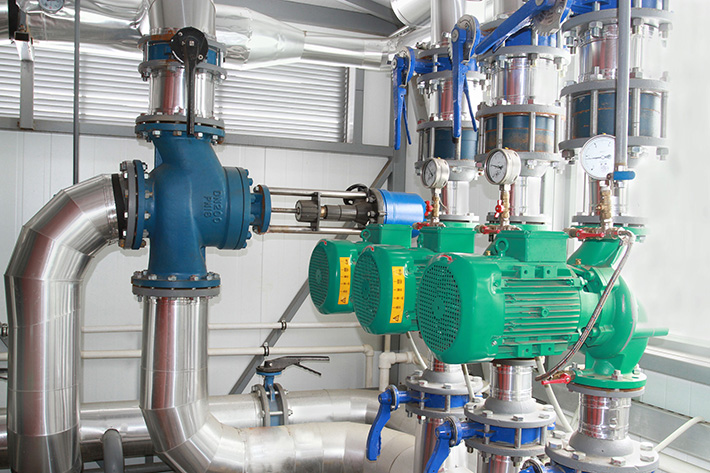Hydraulic pumps are used in almost every type of production system or industrial equipment in some form. Pumps that are properly maintained can last for years, but when a hydraulic pump fails it will cause your company to halt production.
Let’s take a look at some of the signs that it’s time for your hydraulic pump to be repaired.
It’s important to recognize these signs so that you can effectively fix the issues before there’s a catastrophic failure, saving you crucial time and money.
Interior and Exterior Leaks
If you notice a decrease in performance with a hydraulic pump you may have interior leaks if there aren’t any exterior leaks. Interior leaks can happen without any signs visible to the user but are serious in terms of the life of your pump. Exterior leaks are obvious and noticeable and leak issues can normally be fixed relatively easily with new seals or valves, fixing the problem before it becomes a serious issue leading to malfunction.
Unusual Noises or Sounds
Hydraulic pumps are built to work with minimal noise, so if you hear sounds such as knocking, loud bangs, or pops, is a sign that something is not working properly. These sounds are normally an issue of trapped air or cavitation normally caused by insufficient pressure. This issue can lead to catastrophic failure of your hydraulic pump and should be addressed immediately, normally this can be fixed by finding the source where the air is entering the system from and fixing it, and bleeding the system of air after repair.
Regular seal failure
If the seals on your hydraulic pump are failing on a regular basis, there may be a few things responsible for this that need to be repaired. One of the most prevalent reasons for this is a misalignment or bent rod. Depending on how seriously damaged the rod is, a hydraulic repair shop may be able to fix the already existing parts and equipment at a lower cost and get the pump running normally in a fairly short period of time saving your company time and money.
High working Temperatures
Fluid Viscosity is important for keeping your hydraulic pumps running smoothly and functioning properly. This viscosity depends on factors like temperature and pressure. If either the temperature or pressure is not within recommended guidelines your pumps will experience unnecessary strain that will eventually lead to damaging and failure. As a basic guideline the temperatures of 180 degrees Fahrenheit or higher will have negative effects on your equipment and are usually reached if cooling of the system is not working properly. If this is the case with your hydraulic equipment, be sure to check that there are no obstructions with your reservoir, as reservoirs work as a radiator to help dissipate heat in some systems, and also check the heat exchanger.
Slow and Sluggish Performance
If your hydraulic pump seems sluggish or slow with a major decrease in performance, you may have a pump that is going bad. Slow operation and longer cycling of the pump are clear signs that you need repairs, or you will eventually have a failure with your pump system. This lack of efficiency is normally a sign of lack of fluid flow and should be inspected and repaired.
What Happens When Air Gets into the System?
Some of the most common symptoms of air in your hydraulic pump and extended systems are issues mentioned previously in this article. Issues such as higher temperatures, cavitation, really spongy and sluggish response when in use, and low levels of fluid in the system.
How often should I change the Fluid in my Hydraulic pump system?
Hydraulic fluid is one of the most important parts of your hydraulic pump system and is essential for smooth operation and for preventing unnecessary damage. Your hydraulic system needs to have its fluid maintained within a certain range for purity. Hydraulic fluids in a system should be inspected every 100 hours of use, and the entire fluid system should be purged, and new fluid added every 1000 hours or as recommended by your hydraulic pumps manufacturer.
If your hydraulic equipment has failed or needs a reliability centered maintenance check, Servo Kinetics Ann Arbor can help! We promise you the highest quality hydraulic repairs at the lowest possible cost and fast turn-around. We’ve been in business for over 45 years and have worked with industries that have very exacting standards and include some of the most tech savvy companies in the world.
Our hydraulic repair services include Vickers classic factory rebuilds, Beach Russ repair, EHC energy pump repair services and much more. We also provide reverse engineering services and manufacture new pumps and motors. Call us to learn more about our services and ask about our Special Offers!

